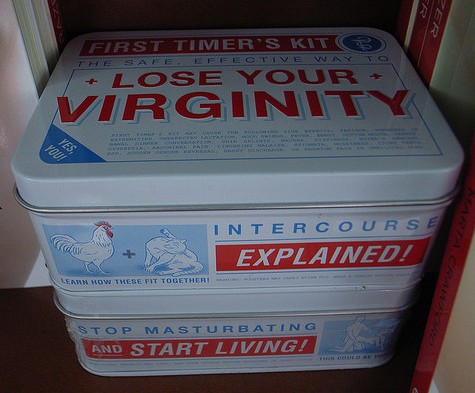
Despite growing research that people are having less sex in the United States, the perception that “everyone is doing it” persists, especially for young people. In a recent article, The Atlantic asked social scientists why young people aren’t having more sex.
Lisa Wade, author of the book, American Hookup Culture, says that one of the reasons for is that young people are more likely to have sex within relationships than in hookups, and always have been:
“Go back to the point in history where premarital sex became more of a thing, and the conditions that led to it…Young women, at that point — [the 1940s and 50s] — innovate ‘going steady.’ If you [go out with someone for] one night you might get up to a little bit of necking and petting, but what happens when you spend months with them? It turns out 1957 has the highest rate of teen births in American history.”
Part of the reason young people today are having sex more in relationships than in hookups — at least for women — might be that they are avoiding bad sex. According to Paula England, women report sex in hookups is less pleasurable than sex in relationships. Based on recent trends, it appears as though fewer young people are actually having relationships at all, marriage or otherwise. And the rise of online dating apps means that people meeting online are marrying more quickly, which might mean they are dating less overall, according to Michael Rosenfeld.
Despite a decline in sex overall for young people, this decline likely does not affect all young people equally. Since research shows that a good sex life appears to contribute to happiness and other health benefits, this also means that those who do not have a fulfilling sex life also do not reap those benefits. The article’s author, Kate Julian, concludes,
“Like economic recessions, the sex recession will probably play out in ways that are uneven and unfair. Those who have many things going for them already — looks, money, psychological resilience, strong social networks — continue to be well positioned to find love and have good sex and, if they so desire, become parents. But intimacy may grow more elusive to those who are on less steady footing.”









